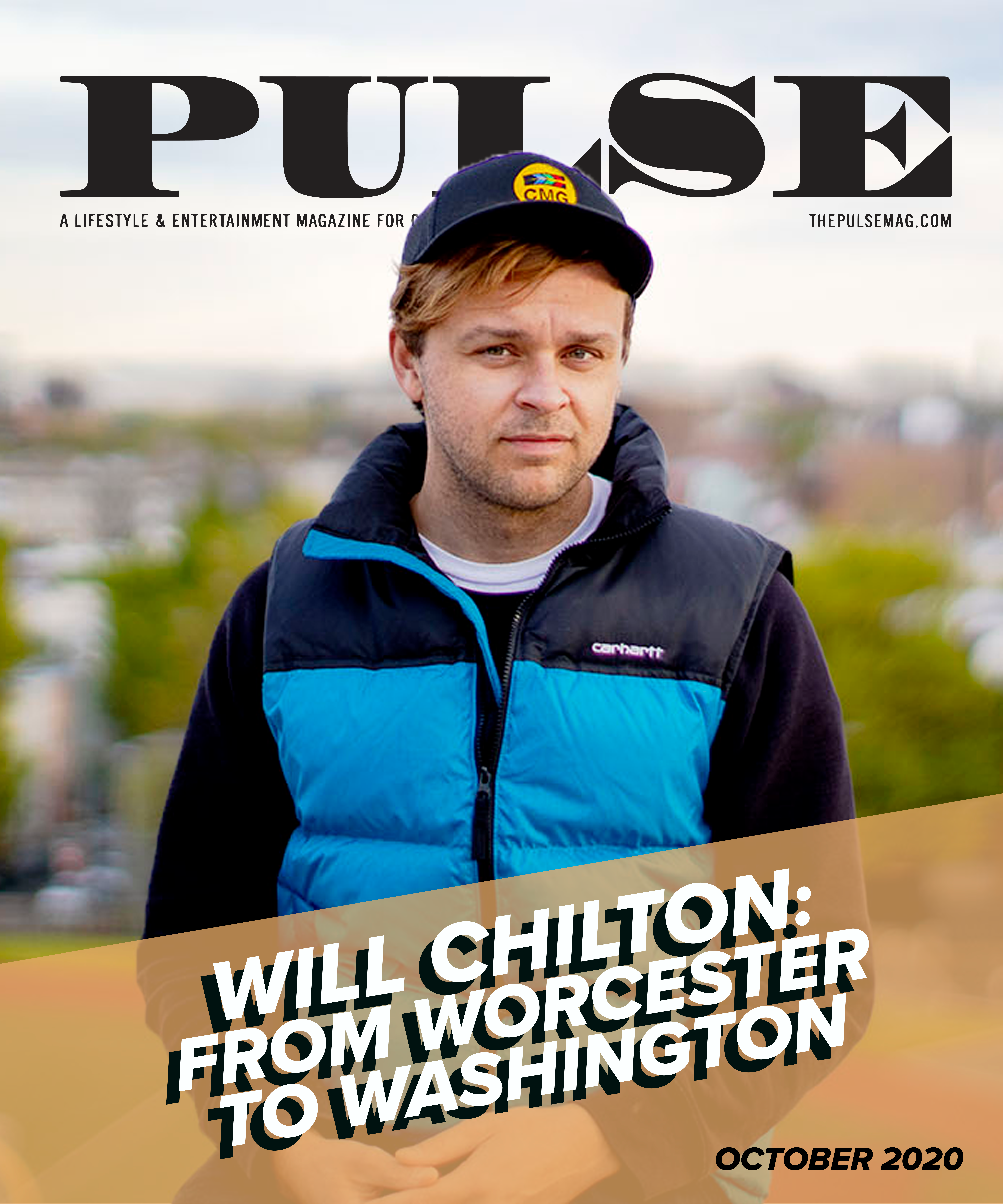
Written by: Josh Lyford
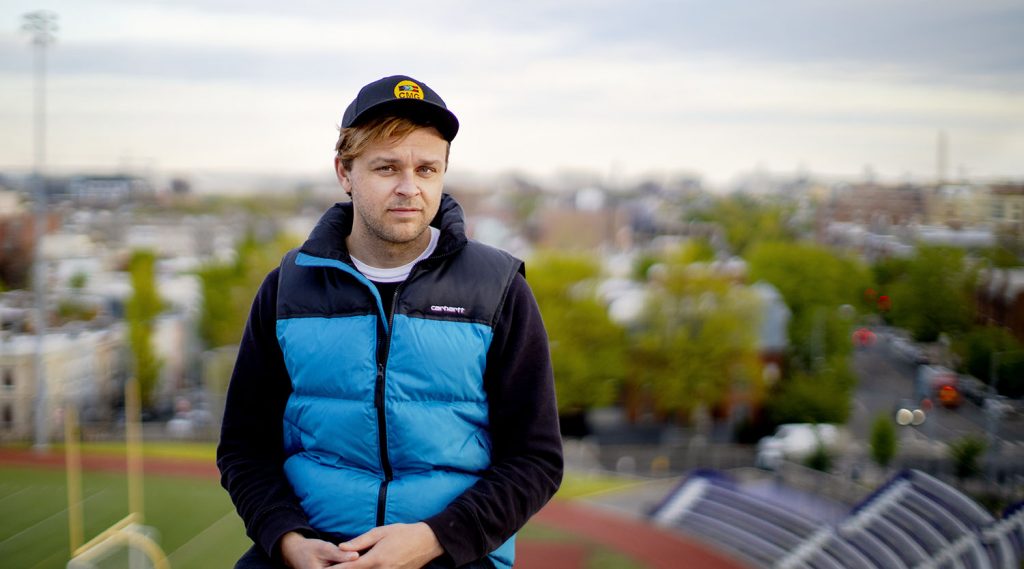
From the nuance of mass extinction events in remote parts of India, to voting encouragement discussions between former President Barack Obama and former Vice President Joe Biden, there are few dull days in the life of Worcester native Will Chilton. The producer and director of photography may have spent his formative years in the halls of Bancroft High School, but these days his videos are streamed in millions of homes. Whether it’s the economic impact of free parking, or the high stakes world of politics and celebrity, Chilton’s viewfinder is never without a well-framed image of the modern world.
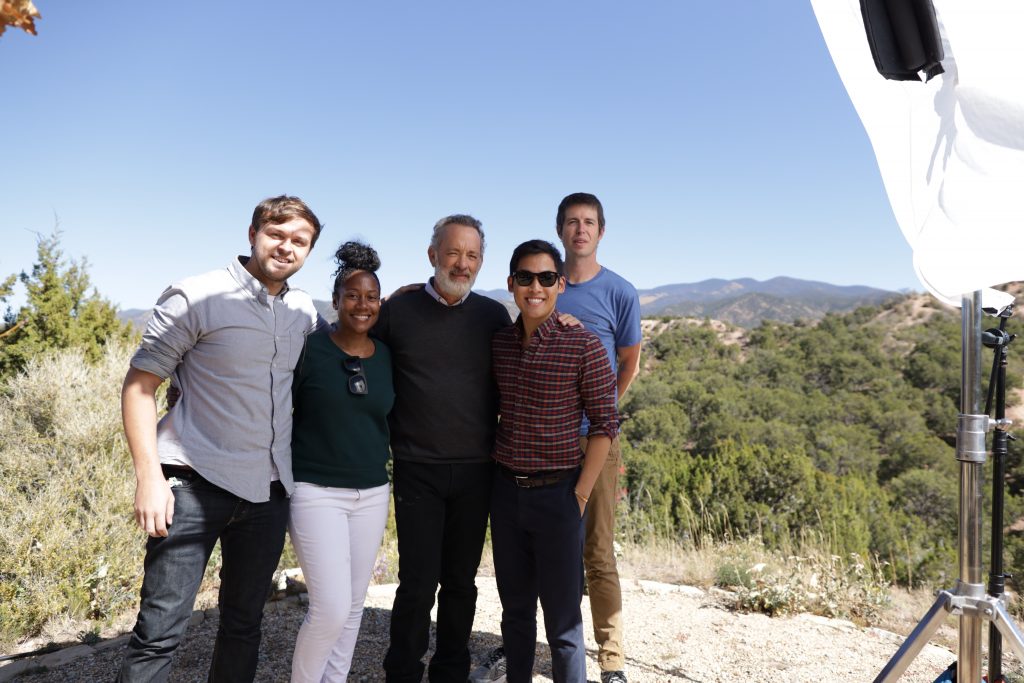
The 32-year-old Chilton and the company he founded, CMG, most recently published “Super Volcanoes Killed the Dinosaurs,” an exploration on what exactly killed the dinosaurs, featuring interviews with experts Gerta Keller and Jahnavi Punekar, filmed in India. Last month, he was assisting on a remote conversation between Senator and Biden-running mate Kamala Harris. He has worked extensively with the Obama family and helped out on video conversation between Obama and Biden. That conversation took aim at the current administration’s handling of the pandemic. While the space between subjects couldn’t be wider, it’s all part of the gig for the cinematographer.
“They scratch different itches,” explained Chilton. “I like working on anything where I feel like I can be useful. I like doing cinematography, but that only uses part of my brain. Solving problems related to lighting, making things look good, that can be challenging and that’s fun. It’s interesting working so close to these personalities. That’s great.”
One of the most significant projects he has been a part of, according to Chilton, was working with the Obama family on Michelle Obama’s “Becoming” book tour. While the footage isn’t readily available online, it was screened for thousands at each tour stop.
“She went on her big arena tour promoting her book at the end of 2018, early 2019,” he said. “We shot all these interviews with her family, her daughters. All of that became programming for the tour itself before she took the stage. There was a half an hour of video content that thousands of people watched in an arena on a giant screen. That to me stands out as one of the more fun projects.”
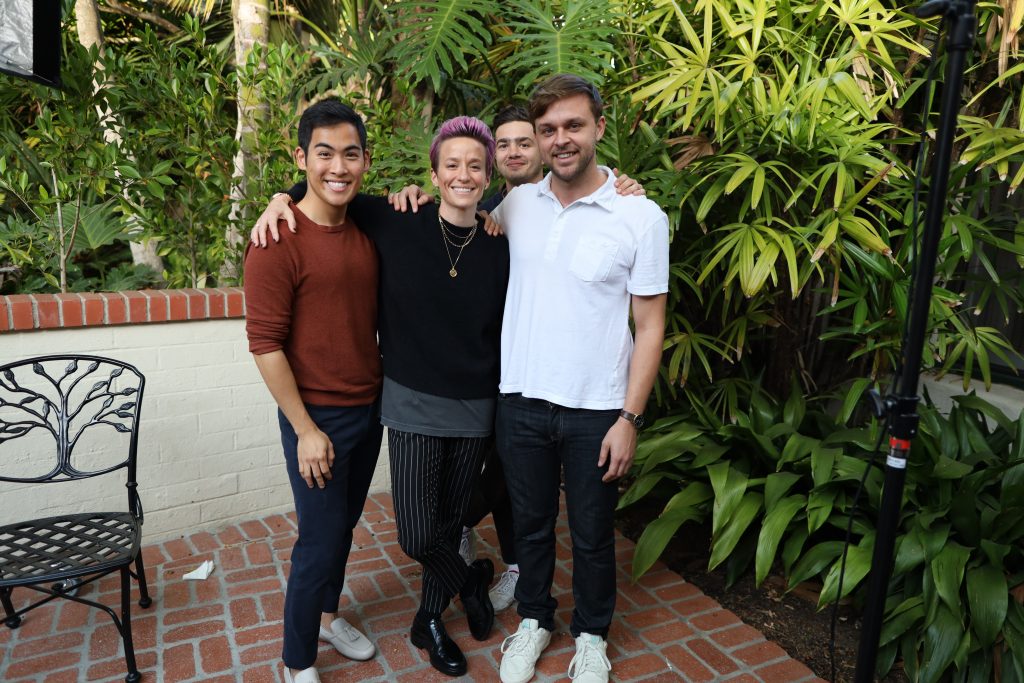
While moments like these stand out, Chilton doesn’t spend every day bumping elbows with former first ladies and their families. Regardless of who is being framed in a particular shot, he enjoys the path he carved out for himself.
“I enjoy it a lot,” said Chilton. “I think, at the end of the day, I feel lucky that I don’t have an office job. All of these projects are a little different. You go somewhere different, meet different people. They could be a former president, or an actor, or a random expert in fossils. There are a lot of different experiences. That’s my favorite part. I also like the process of actually creating this stuff. Post production, graphics, animation, cameras, lights, that’s all fun for me.”
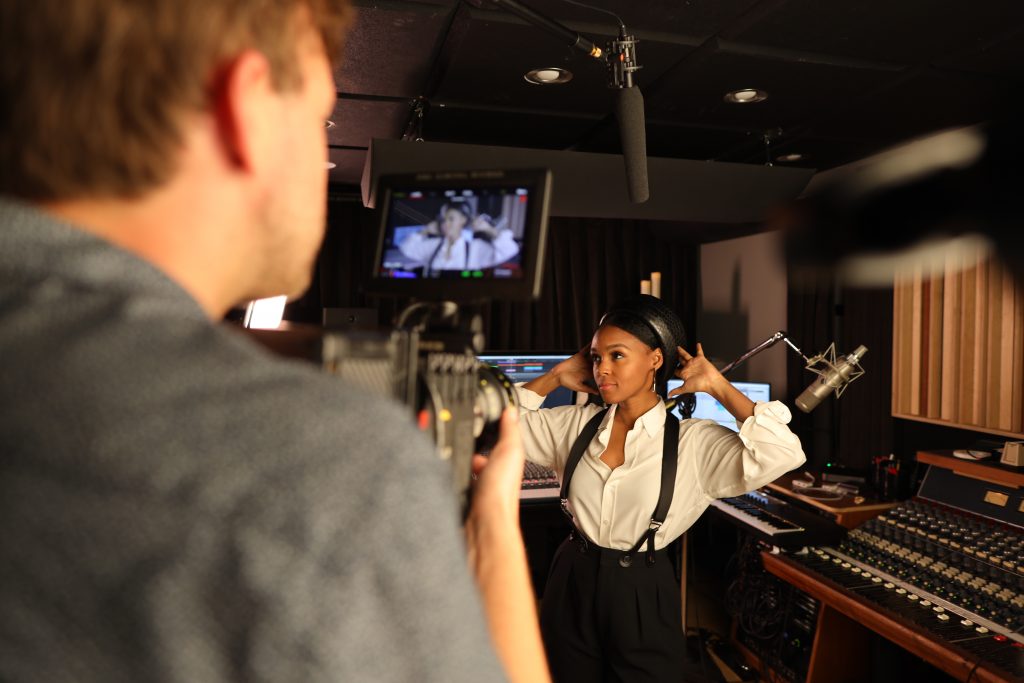
Chilton’s path is an unconventional one. While it is easy to see his success, the road he took to get there is much less clear. Chilton grew up around Central Massachusetts, living in Worcester, Boylston and Shrewsbury while attending Bancroft. His foray into video work itself was unorthodox.
“Between highschool and college I took a gap year,” he recalled. “Eventually I had a couple random jobs, but the first thing I did was take a three month backpacking trip around Europe.”
Chilton was 18 at the time and Facebook wasn’t quite the behemoth it is today, though it proved a useful tool.
“Facebook had just started allowing you to post things like travel albums,” he said. “At this point, that doesn’t seem special at all, but they had just kicked off this feature. I was travelling in Europe, basically alone, and my parents were really concerned. I had this little camera and every day I’d walk around and take all these photos and upload them to Facebook and send them to my parents. People started telling me they liked the photos. If it happened today, there is such an abundance of photos, I don’t think I would have gotten the feedback, but I thought maybe this is something I want to get more serious about.”
Chilton returned from his European trip and headed off to continue his education, studying economics at Macalester College in Saint Paul, MN. While economics may seem like a strange fit for a budding videographer, it was actually a chance occurrence in the admissions office that truly set him on his path.
“At the end of my senior year, someone had seen that I had a travel blog and asked if I wanted to work at the admissions office doing video,” he said. “I had never done video. That was my first time trying video production at all. It was pretty much my first summer after college I spent working at the college admissions office. I basically learned the basics of video production.”
Initially Chilton thought that his lack of formal education in cinematography might affect his chances of furthering his career, but even his lack of education became its own sort of momentum.
“I’m pretty good at learning on my feet,” said Chilton. “In the world of media production, having traditional credentials — like if you went to film school — that’s really not very valuable if your portfolio isn’t good. Just because you went to NYU doesn’t mean someone necessarily wants to work with you. That’s a really good school, but it comes down to your portfolio.”
That lesson was not immediately clear to Chilton, however, and his desire to develop an edge in the industry was strong.
“I felt I was at a huge disadvantage,” he recalled. “I thought I wasn’t going to be able to compete with people that went to film school. I thought my edge was to wherever possible deliver the highest possible production value. I’ve gotten to work with some really talented people and pick their brains.”
Chilton went on to produce videos for the National Academy of Sciences, Vox, The Obama Foundation others.
“I feel proud of it,” said Chilton. “Not since I was a teenager have I had a normal job. If you zoom out and look backwards, everything is OK, but when you’re looking forward to the calendar it’s like, will I ever work again? At this point, I don’t worry about it too much. There’s always more work. I don’t feel like I’ve arrived at a point where I can be complacent and the work will just keep coming.”
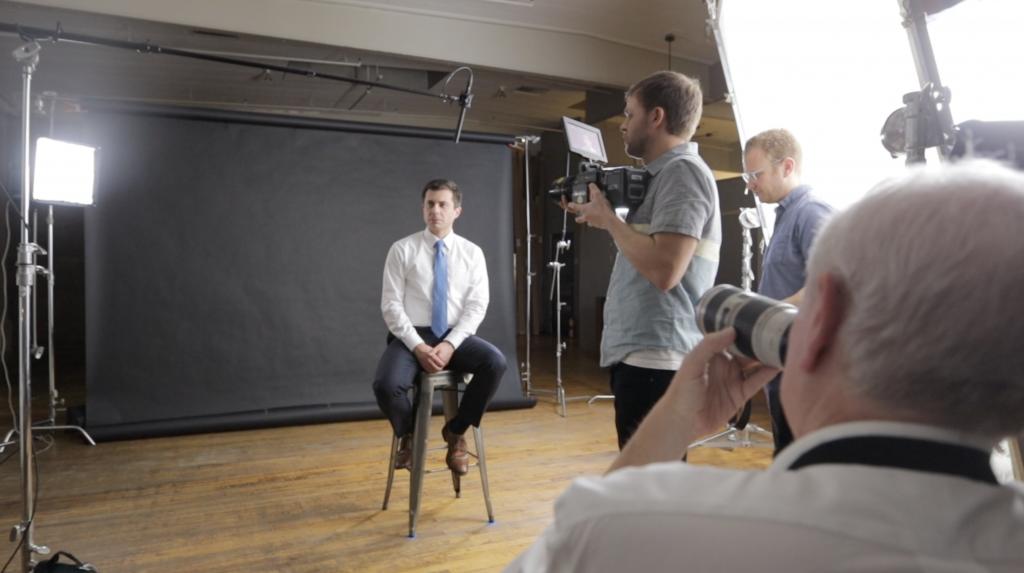
While the satisfaction of producing high quality content that will be viewed and shared by thousands, or potentially millions is a reward in itself, there is an additional perk to Chilton’s chosen path: seeing traditionally tightlaced public figures while the cameras are off.
“The world of politics is full of people worrying about optics and how they appear in media,” he said. “Some of these personalities are very adept at censoring themselves once the cameras are rolling. When you’re actually with them when the cameras aren’t rolling, you get to hear them maybe swear or something and it’s kind of fun. A famous politician talking like they don’t on TV is momentarily thrilling.”
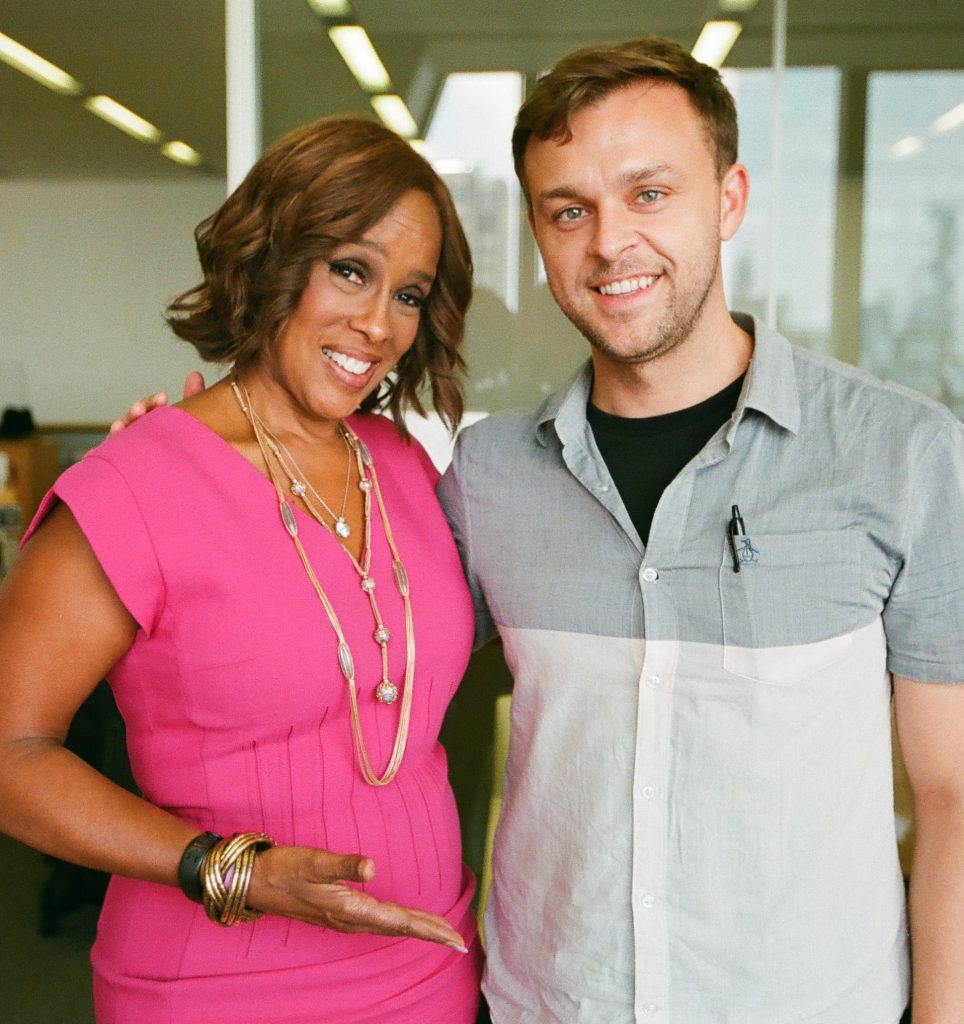
While Chilton’s path took him from Worcester to Washington and to his current home in New York City, he hasn’t left the Heart of the Commonwealth behind.
“Now that I’m an adult and I don’t live there, I feel an unreasonable amount of pride over Polar seltzer,” he said. “Everybody is drinking La Croix and I’ve gotten way more into Polar in recent years. Our favorite restaurant was Tortilla Sam’s, but that’s not there anymore. It definitely feels like Worcester is on the up-and-up. The way they’ve redeveloped downtown. There’s a lot of great restaurants. I was just there about a month ago and we went to several breweries that were great.”
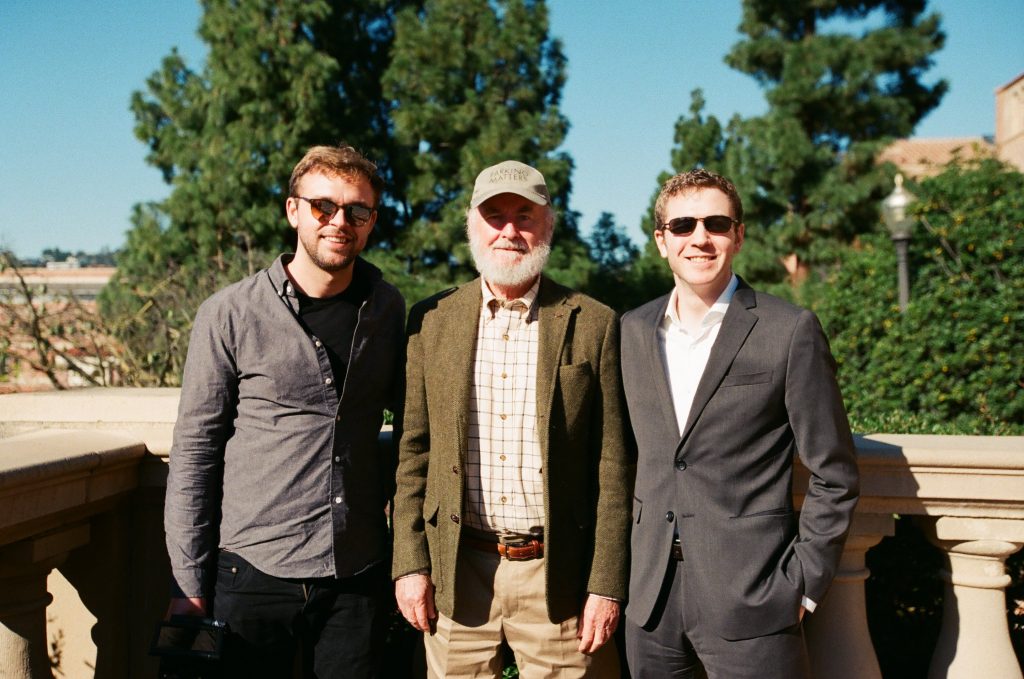
You can find out more on Chilton’s work online at Willchilton.com. For more information on his production company, CMG, check out Chilton.media.





